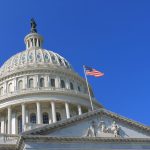Published January 25, 2012
There wasn’t much suspense in the run-up to last night’s state of the union address because President Barack Obama long ago signaled the kind of populist and heavily political speech he was going to deliver.
Last September, after a long hot summer of debt limit brinksmanship, he convened a joint session of Congress to deliver what was billed as a “jobs” speech but what was really the first salvo in the 2012 general election campaign. The proposals the president outlined that evening were not new and had previously been rejected by Congress. But that didn’t matter. They weren’t offered to start a legislative process that would result in passage of a bill that would get signed into law and would create jobs; they were offered to provide voters with a stark contrast between the parties in advance of an election year.
In the aftermath of the jobs speech, the president went on the road and denounced the “do-nothing” Congress in several campaign-style events in critical electoral states, even though no real effort was made by the White House to move a compromise plan through Congress. The president’s early autumn speeches were punctuated with the kind of heavily political rhetoric normally reserved for the party conventions just before presidential elections, such as when he said the Republican plan for the country boils down to “dirtier air, dirtier water, and less people with health insurance.”
In early December, the president ratcheted up the rhetoric still further with an economic speech in Osawatomie, Kansas focused on supposed reasons for the struggles of the American middle class.
So, it was no real surprise that during last night’s state of the union address the president hit on the same populist themes he has been pounding since Labor Day, which essentially come down to this: the nation’s economic troubles—anemic job growth today, massive federal borrowing and debt accumulation, and stagnant wage growth for the middle class—can all be traced to public policies which deliver excessive economic gains to the rich at the expense of everyone else.
In other words, if only the Republicans were willing to tax the rich, all would be well.
Predictably, that was again the central message in the president’s address last evening, as was clear when the White House announced that Warren Buffett’s secretary would be the First Lady’s special guest for the evening.
There’s no question that the president’s populist, tax-the-rich rhetoric resonates with a segment of the electorate that has struggled economically and is all-too-willing to accept the simplistic explanation that the blame for their troubles lies with the so-called “rich.”
But what President Obama didn’t explain last evening—indeed, has never really explained—is how a tax hike on higher income households will help the struggling middle class.
Because it’s not at all obvious it would.
For starters, if, as the president proposes, the rich are taxed at higher rates but the government’s main entitlement programs remain entirely unreformed, the government’s deficit and debt problems will not be solved. According to the Congressional Budget Office (CBO), spending on Social Security, Medicare, and Medicaid in 1980 was just 6.0 percent of GDP. In 2030, spending on those programs plus ObamaCare is expected to reach 15.2 percent of GDP (using assumptions about health cost growth that is slightly more realistic than current law). That jump in spending is the real cause of our fiscal problems. If, as the president proposes, the Bush tax cuts are allowed to expire for those with incomes above $200,000 ($250,000 for couples), that might raise revenue by about 0.4 percent of GDP per year. That’s not nearly enough to cover the explosion in entitlement spending that will occur over the coming two decades.
Moreover, there’s strong evidence that higher taxes will hurt growth and job creation, despite the claims of the president to the contrary. Among economists, it’s really a debate about how damaging higher tax rates will be to growth and job creation. There’s no real debate that such taxes are neutral in that regard.
But even setting aside the likely damage that would ensue from higher taxes, the president has never articulated a coherent theory about how a presumably larger government would bring about higher paying jobs for the middle class. Because there’s no evidence whatsoever that the middle class or anyone else will be better off if the government increased spending on items that the president likes to call “investments.” The president is not calling for stimulus spending to raise aggregate demand in a Keynesian sense. He long ago abandoned that line of argument. No, what he proposed last night is simply more spending on certain programs financed by higher tax collection. Thus, any benefit to the middle class would have to come from the quality of the government’s “investments.”
Unfortunately for the president, there’s no evidence that more governmental spending will lead to better jobs for anyone. He mentioned against last evening that job training is a central component of his program. But federal job training efforts have a four decade record of failure, and the president’s speech gave no indication that his administration has found a way to deliver services in ways that will lead to better results.
After the deep recession of 2008 and 2009, what the country needs more than anything else is a period of robust economic growth. That’s the only remedy that will truly help the American middle class. But in his speech last evening, the president again served up the kind of populist rhetoric that might make his most devoted followers feel better but will do nothing to address the growth deficit that threatens his presidency.
James C. Capretta is a fellow at the Ethics and Public Policy Center and project director of e21’s ObamaCare Watch. He was an associate director at the Office of Management and Budget from 2001 to 2004.






